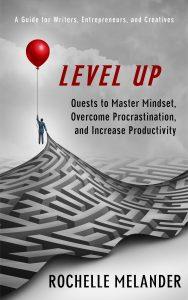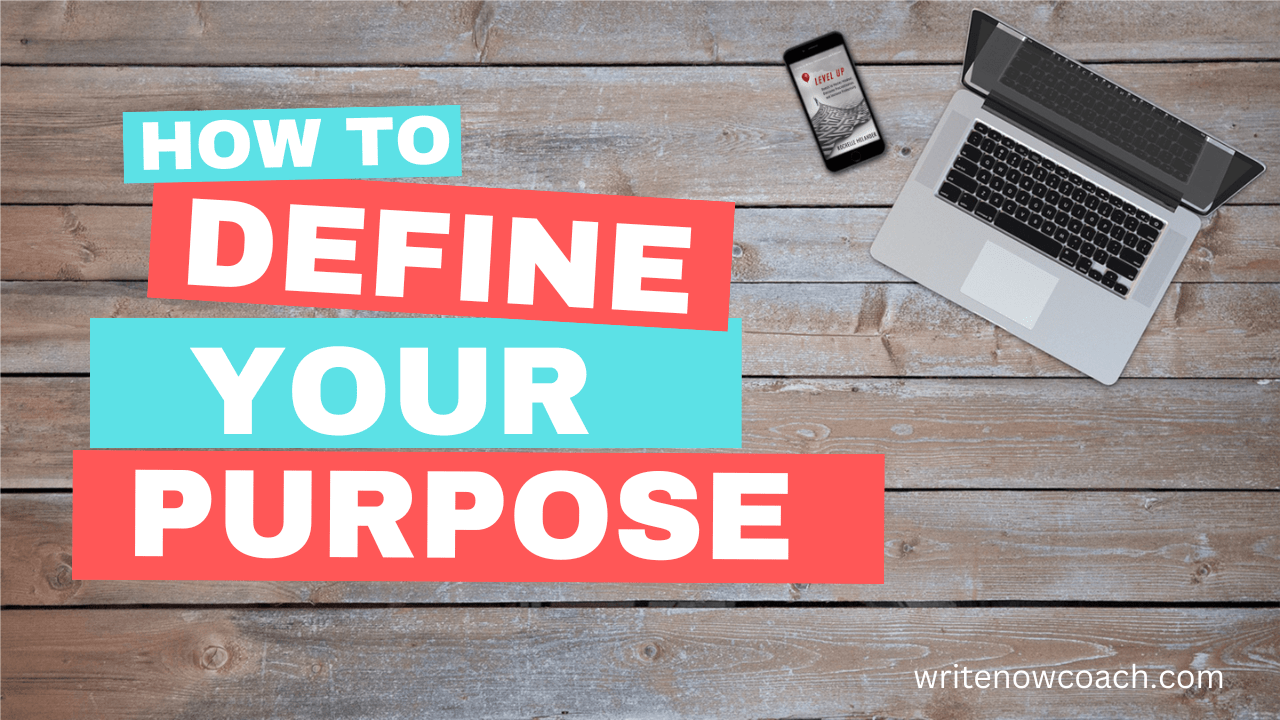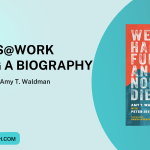Define Your Purpose
April 18, 2023
Note From Rochelle
Dear writers,
Accountability. It’s the best way I know to keep writing forward, especially when I’m working on a project that does not have a contract.
If YOU need accountability, I have room for two or three more writers in the Writing Accountability Group. We begin April 27 and meet every other week. This small, intimate gathering will help you examine your own writing practices and stay accountable to getting stuff done. Learn more here: https://writenowcoach.com/writing-accountability-group/
 Today’s tip is an excerpt from my book, Level Up. Lately, I’ve been collecting rejections. Sometimes, I wonder why I spend so much time writing when selling my work is so challenging. Revisiting the idea of purpose—and thinking about how purpose can be totally separate from publishing—has helped me show up every day. If you’re struggling with showing up to write, getting connected to your purpose can help.
Today’s tip is an excerpt from my book, Level Up. Lately, I’ve been collecting rejections. Sometimes, I wonder why I spend so much time writing when selling my work is so challenging. Revisiting the idea of purpose—and thinking about how purpose can be totally separate from publishing—has helped me show up every day. If you’re struggling with showing up to write, getting connected to your purpose can help.
Happy writing,
Rochelle, the Write Now! Coach
Define Your Purpose
By Rochelle Melander
When I dare to be powerful, to use my strength in the service of my vision, then it becomes less and less important whether I am afraid.
– Audre Lorde
Negative voices emerge when we get disconnected from why we are writing, making art, launching a business, or doing any other hard thing. Positive messages help, but it can be difficult to overcome the negative voices in our head by simply replacing them with positive messages. Connecting to our purpose becomes a more powerful practice.
Many years ago, I interviewed writer Jeffrey Gingold. He spoke about being on a big television show with his book, Facing the Cognitive Challenges of MS. I asked if it was scary. He said, “When you are doing something to help people, fear doesn’t matter.” His words helped me to see the reason I was writing—to help people overcome their own fears.
In this quest, you’ll consider your purpose and use it as a tool to overcome fear and negativity.
The Quest
Consider your current project. Open your journal and write about why you are working on this particular project. Are you hoping to help people, encourage others, create joy, entertain, or something else?
As you list your reasons for writing, remember this: your purpose does not have to be about publishing. Your purpose might be highly personal. Do you want to learn new information, solve a problem, heal yourself, discover new ideas, tell a story, or articulate a theory?
List everything that applies.
Create a Purpose Statement
Once you have a list, turn your “why” into a purpose statement. So, “entertain” might become, I am writing this book to engage readers and invite them to laugh! Or “help people” might be, I am launching this home study program to help people overcome financial blocks and tap into prosperity. “Learn” might be, I am writing this book on fear to learn about my own fear triggers and how I can comfort myself.
Use Your Words
Choose one or two of your purpose statements and find a way to incorporate them in your daily life.
- Repeat them as a part of your morning routine.
- Put them in your phone, on your computer, or near your working desk as reminders to live according to your purpose.
- Keep one copy with you at all times, so you can access it whenever fear shows up.
Game Play Tips
- Revise your purpose statement for each project.
- If your purpose statement doesn’t work or feel right, then try again. Dig deeper until you land at your true purpose.
- If you get stuck figuring out the why, ask a friend to interview you. Sometimes you can discover your motives behind your actions in conversation with other people.
For the Win
When we get connected to our purpose, we overcome fear. I’ve noticed that many writers who fear big crowds will brave them because they know the deeper purpose: to connect in a meaningful way with their readers. Whatever your purpose is, let that be more important than your fear. Get connected to why you write, and you’ll always be able to put words on paper.















